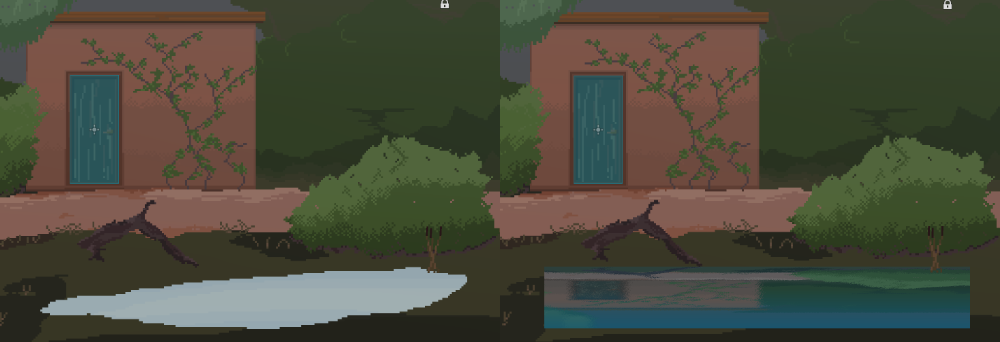I think you'd want to apply the alpha value of the sprite. You can do that by making the last line "COLOR = vec4(mix(...).rgb, texture(TEXTURE, UV).a)"
Godot
Welcome to the programming.dev Godot community!
This is a place where you can discuss about anything relating to the Godot game engine. Feel free to ask questions, post tutorials, show off your godot game, etc.
Make sure to follow the Godot CoC while chatting
We have a matrix room that can be used for chatting with other members of the community here
Links
Other Communities
- !inat@programming.dev
- !play_my_game@programming.dev
- !destroy_my_game@programming.dev
- !voxel_dev@programming.dev
- !roguelikedev@programming.dev
- !game_design@programming.dev
- !gamedev@programming.dev
Rules
- Posts need to be in english
- Posts with explicit content must be tagged with nsfw
- We do not condone harassment inside the community as well as trolling or equivalent behaviour
- Do not post illegal materials or post things encouraging actions such as pirating games
We have a four strike system in this community where you get warned the first time you break a rule, then given a week ban, then given a year ban, then a permanent ban. Certain actions may bypass this and go straight to permanent ban if severe enough and done with malicious intent
Wormhole
Credits
- The icon is a modified version of the official godot engine logo (changing the colors to a gradient and black background)
- The banner is from Godot Design
This worked perfectly - thank you!!
For anyone else looking here later, the final shader code (confirmed working Godot 4.2) is:
shader_type canvas_item;
uniform sampler2D screen_texture : hint_screen_texture;
uniform vec4 water_color : source_color;
uniform sampler2D wave_noise : repeat_enable;
void fragment() {
vec2 water_wave = (texture(wave_noise, UV * TIME * 0.02).rg - 0.5) * 0.02;
vec2 uv = vec2(SCREEN_UV.x , SCREEN_UV.y - UV.y) + water_wave;
vec4 color = texture(screen_texture, uv);
float mix_value = 1.0 - UV.y;
float avg_color = (color.r + color.g + color.b) / 3.0;
avg_color = pow(avg_color, 1.4);
mix_value += avg_color;
mix_value = clamp(mix_value, 0.0, 0.7);
COLOR = vec4(mix(water_color, color, mix_value).rgb, texture(TEXTURE, UV).a);
}
Credits to Single-mindedRyan for creating this shader in the first place.
Oof, I haven't touched shaders in Godot myself yet, besides a very simple section during one tutorial, so maybe I should not give any advice, but I think this can be solved by applying the shader to the pond and adding a check for transparency before applying the changes to the pixels.
